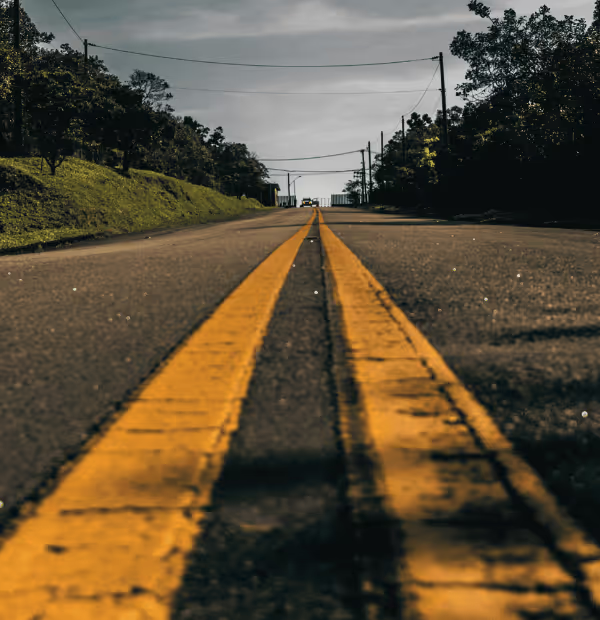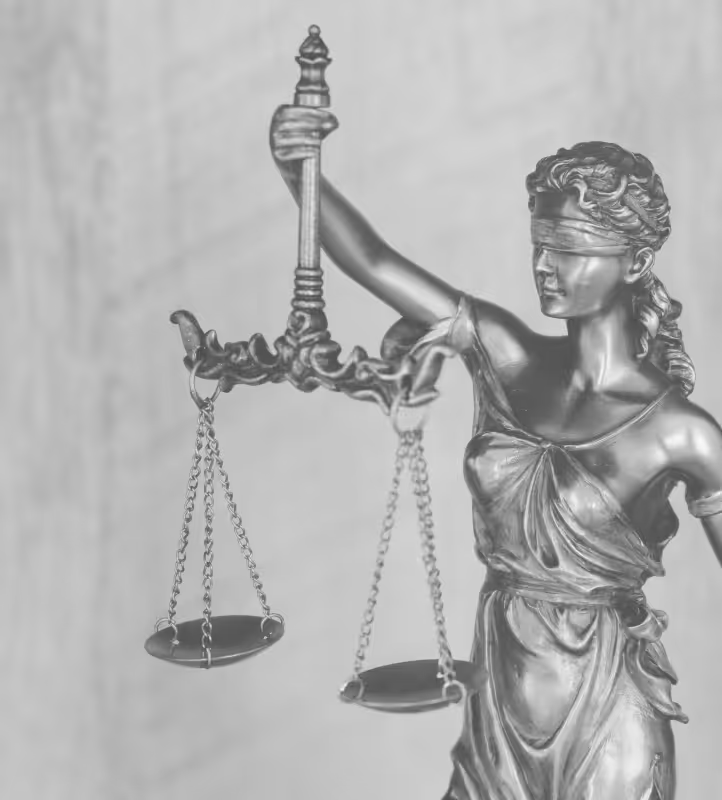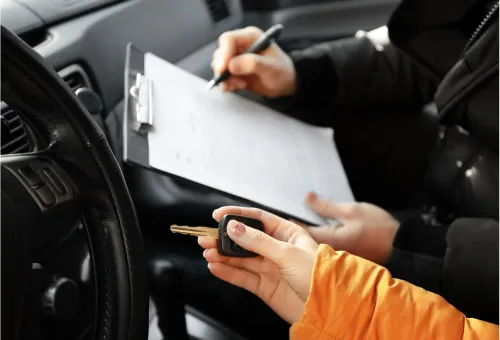Drive while suspended, disqualified or cancelled

Licence Suspension and Disqualification Offences in NSW
In New South Wales, it is an offence to drive a motor vehicle on a public road if your licence has been suspended or cancelled by Transport for NSW or NSW Police. These offences are taken seriously by the courts, particularly if there is a history of prior driving offences.
However, even if your traffic record is poor, the court has the discretion to deal with the matter without recording a conviction. Under Section 10 of the Crimes (Sentencing Procedure) Act 1999, a court may find you guilty of the offence but decide not to record a conviction. In such cases, you would not be disqualified from driving.
If the court does record a conviction, you will be disqualified from driving for the automatic disqualification period unless the court chooses to impose a longer or shorter disqualification (as long as it is not shorter than the statutory minimum).
What is Drive While Suspended, Disqualified or Cancelled?
In New South Wales, driving while suspended, disqualified, or cancelled is a criminal offence under the Road Transport Act 2013 (NSW). It refers to the act of operating a motor vehicle on a public road while your driver licence has been:
- Suspended – temporarily withdrawn by Transport for NSW due to reasons such as unpaid fines, medical issues, or demerit points. NSW Police can also suspend your licence immediately under section 224 of the Road Transport Act 2013 (NSW).
- Disqualified – prohibited by a court order, often following a traffic offence such as drink driving
- Cancelled – permanently terminated by Transport for NSW or the courts, requiring re-application if eligible in future
These offences are treated seriously by the courts, as they reflect a disregard for legal driving restrictions. Penalties can include fines, licence disqualification, and even imprisonment, particularly for repeat offences.
Elements the Prosecution Must Prove
To secure a conviction for Drive While Suspended, Disqualified or Cancelled in NSW, the prosecution must prove each of the following elements beyond reasonable doubt:
- The accused was driving a motor vehicle – That you were operating or in control of a vehicle on a road or road-related area
- The driving took place on a public road or road-related area – Not on private property
- At the time of driving, your licence was suspended, disqualified, or cancelled – That your authority to drive had been legally withdrawn by Transport for NSW or the courts. NSW Police can also suspend your licence immediately under section 224 of the Road Transport Act 2013 (NSW).
- You were aware, or should reasonably have been aware, of the suspension, disqualification, or cancellation – While actual knowledge is not strictly necessary for conviction, courts will consider whether a reasonable person in your position would have known about the status of their licence (e.g., through prior correspondence or court notices)
If any one of these elements is not proven, the charge must be dismissed.
Possible Defences
There are some possible defences to a charge of driving while suspended, disqualified or cancelled in NSW:
1. You Did Not Drive the Vehicle
If you were not the person driving at the time, or there is mistaken identity, you may raise this defence. The prosecution must prove that you were the driver
2. You Were Not on a Public Road
The offence only applies if you were driving on a public road or road-related area. Driving on private property (e.g., a farm or driveway) may not constitute an offence under the law
3. You Were Not Aware of the Licence Suspension, Cancellation or Disqualification
In some cases, you may be able to argue that you were not notified or were unaware your licence had been suspended, cancelled, or disqualified. For example:
- You never received the notice
- There was a clerical or administrative error
- The notice was sent to the wrong address
However, the court will also consider whether a reasonable person in your circumstances would have known about the change in licence status
4. Honest and Reasonable Mistake of Fact
You may raise a defence of honest and reasonable mistake if:
- You genuinely believed your licence was valid, and
- That belief was reasonable in the circumstances (e.g., you paid a fine and believed your suspension was lifted)
5. Duress or Necessity
If you were forced to drive due to a threat (duress) or to prevent serious harm (necessity), this may be a legal excuse. For example:
- Driving someone to hospital in a medical emergency
- Escaping a violent situation
Potential Penalties
For a first-time offender:
For a second or subsequent offence (within 5 years):
However, it is important to note:
- The court must disqualify you from driving unless it dismisses the matter without conviction (e.g., under Section 10 of the Crimes (Sentencing Procedure) Act 1999)
- Imprisonment is more likely for repeat offenders or where there are aggravating factors (e.g., speeding, drink driving at the time)
- A conviction will also result in a criminal record

Legal Process
& Options
If you are charged, you will be required to appear in the Local Court. Before entering a plea, you may wish to obtain legal advice.
Pleading
Not Guilty
If you believe the charge is incorrect, you can plead not guilty and challenge the case in court. This may involve:
- Calling evidence to prove your licence was valid
- Arguing that you did not know your licence was cancelled or suspended
- Raising legal defence such as necessity or mistake
If successful, the charge will be dismissed, and no penalty will be imposed
Pleading
Guilty
If you decide to plead guilty, this can show the court that you are taking responsibility. It may result in a reduced fine or disqualification period, especially if:
- You have no prior convictions
- You show remorse and explain the circumstances
- You complete a Traffic Offender Intervention Program
In some cases, the court may impose a non-conviction order (Section 10), allowing you to avoid a criminal record and disqualification
It means you are accused of driving a motor vehicle on a public road without ever being issued a valid driver’s licence in Australia.
If you have a valid overseas licence and meet certain conditions, you may not be charged. However, if you should have obtained an Australian licence and did not, you could be liable. It depends on your specific circumstances.
Penalties range from fines up to $3,300 and, for repeat offences, up to 6 months imprisonment. Licence disqualification may also be imposed, especially for subsequent offences.
The court has discretion, especially for first-time offenders, to dismiss the charge or decide not to record a conviction under Section 10 of the Crimes (Sentencing Procedure) Act 1999. This means no criminal record or licence disqualification.
Possible defence include mistaken identity, driving on private property, or lack of knowledge that a licence was required. Each case depends on its facts and evidence.
You should seek legal advice promptly. A lawyer can explain your options, help prepare your case, and negotiate with prosecutors to reduce penalties or dismiss the charge.
- Yes. A conviction and disqualification can delay your ability to obtain a licence and may affect your insurance and employment prospects.
It is a criminal offence under section 54 of the Road Transport Act 2013 (NSW) to drive a motor vehicle while your driver licence is:
- Suspended (temporarily withdrawn)
- Disqualified (by a court or authority from holding a licence)
- Cancelled (revoked and no longer valid)
- Yes, if convicted. A finding of guilt will usually result in a criminal conviction, which may affect employment, travel, and future court matters. In limited circumstances, you may receive a non-conviction order (e.g., a section 10 dismissal)
- Yes. If convicted, you will be disqualified from driving for a minimum period set by law. The court may reduce the disqualification to the minimum allowable, but cannot remove it entirely
You may have a defence if you can show that you genuinely did not know, and could not reasonably have known, that your licence was not valid. This is a factual defence and will depend on the evidence
The court will proceed to sentence you, considering your:
- Driving history
- Circumstances of the offence
- Level of cooperation and remorse
- Whether you’ve done a Traffic Offender Program
You may receive a reduced penalty for pleading guilty early
- The matter will go to a hearing, where the prosecution must prove the offence beyond reasonable doubt. If the court accepts your defence, the charge will be dismissed.
- Contact Brightstone Defence Criminal Lawyers for expert guidance and immediate support to protect your rights and explore the best defence strategy.
- A Criminal lawyer can help you by:
- Explaining your rights and the legal process.
- Assessing whether you have valid defence.
- Negotiating with prosecutors to reduce charges or penalties.
- Preparing your case for court and advocating on your behalf.
- Helping minimise the impact on your future, such as avoiding a criminal record or lengthy disqualification.
- Early legal advice can significantly improve your chances of a favourable outcome.
It is a criminal offence under section 54 of the Road Transport Act 2013 (NSW) to drive a motor vehicle while your driver licence is:
- Suspended (temporarily withdrawn)
- Disqualified (by a court or authority from holding a licence)
- Cancelled (revoked and no longer valid)
- Yes, if convicted. A finding of guilt will usually result in a criminal conviction, which may affect employment, travel, and future court matters. In limited circumstances, you may receive a non-conviction order (e.g., a section 10 dismissal)
- Yes. If convicted, you will be disqualified from driving for a minimum period set by law. The court may reduce the disqualification to the minimum allowable, but cannot remove it entirely
You may have a defence if you can show that you genuinely did not know, and could not reasonably have known, that your licence was not valid. This is a factual defence and will depend on the evidence
The court will proceed to sentence you, considering your:
- Driving history
- Circumstances of the offence
- Level of cooperation and remorse
- Whether you’ve done a Traffic Offender Program
You may receive a reduced penalty for pleading guilty early
- The matter will go to a hearing, where the prosecution must prove the offence beyond reasonable doubt. If the court accepts your defence, the charge will be dismissed.
- Contact Brightstone Defence Criminal Lawyers for expert guidance and immediate support to protect your rights and explore the best defence strategy.
- A Criminal lawyer can help you by:
- Explaining your rights and the legal process.
- Assessing whether you have valid defence.
- Negotiating with prosecutors to reduce charges or penalties.
- Preparing your case for court and advocating on your behalf.
- Helping minimise the impact on your future, such as avoiding a criminal record or lengthy disqualification.
- Early legal advice can significantly improve your chances of a favourable outcome.
SUCCESS CASES & ARTICLES
Brightstone Defence delivers focused criminal defence services year-round and has built a strong track record of successful outcomes.
Meet our lawyers
WORLD CLASS
REPRESENTATION
100+ 5 Star Reviews
Personalised legal strategies tailored to each case
Recognised leaders in criminal defence law
Free initial consultation and case evaluation
Proven success in high-stakes and complex cases
Get AN instant estimated Quote
and a free consultation session
Facing criminal charges? Our experienced criminal defence lawyers are here to help. Book your free consultation now to discuss your case and understand your options.








